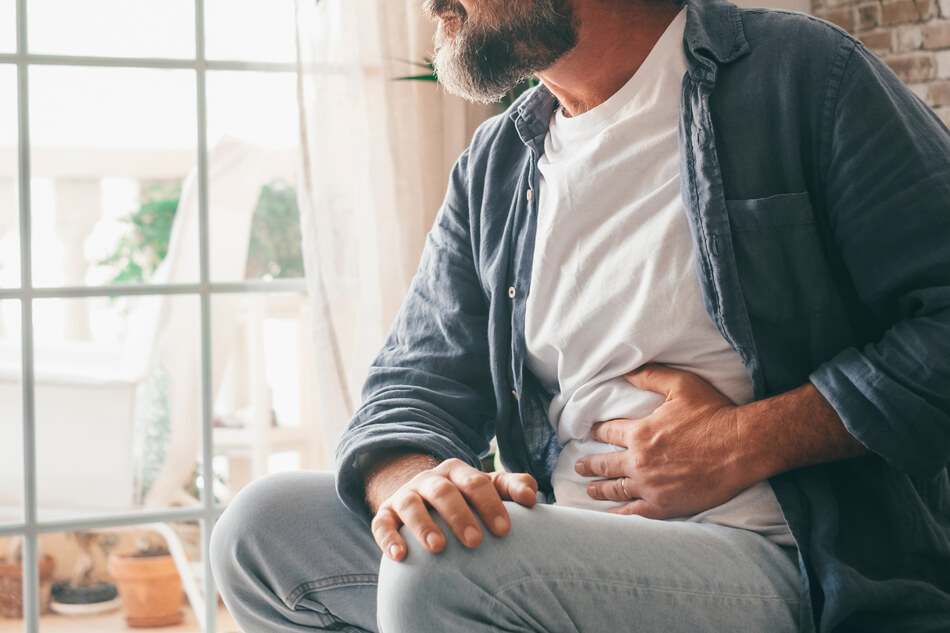When you first start the keto diet, it’s common to experience a few digestive issues. But when diarrhea hits, it can be a real challenge to stick to the diet. In this blog post, we will discuss what causes keto diarrhea and how to deal with it when it strikes. We will also provide a few tips for keeping your gut healthy on the keto diet!
Contents
What Is Keto Diarrhea?
Keto diarrhea is a common side effect of the keto diet. It is caused by the sudden change in diet from a high-carbohydrate diet to a very low-carbohydrate, high-fat diet. When your body is first adjusting to this new way of eating, it can take a while for your digestive system to catch up. This can lead to diarrhea, as well as other digestive issues like constipation and bloating.
Symptoms of Keto Diarrhea
The symptoms of keto diarrhea are typically mild and will go away on their own after a few days. Some of the most common symptoms include:
- Abdominal pain
- Cramping
- Bloating
- Gas
- Diarrhea
If you are experiencing any of these symptoms, it is important to stay hydrated and make sure you are getting enough electrolytes. You can do this by drinking plenty of fluids and adding a pinch of salt to your food.
What Are The Causes Of Keto Diarrhea?
There are a few different things that can cause keto diarrhea. It is important to know the causes so that you can avoid them if possible. Some of the most common causes include:
Increased fat intake
Fat intake is increased on the keto diet, which can lead to diarrhea. When your body is not used to digesting so much fat, it can lead to digestive issues. Sudden changes in diet can also cause diarrhea. And, if you are eating a lot of processed and high-fat foods, that can also lead to digestive problems.
Lack of fiber
Keto diarrhea can also be caused by a lack of fiber in your diet. Fiber is important for keeping your digestive system healthy. On the keto diet, you are likely not getting enough fiber because you are avoiding high-carbohydrate foods like fruits, vegetables, and whole grains. This can lead to constipation, as well as diarrhea.
Too much caffeine
Caffeine is a diuretic, which means it can cause your body to lose fluids. When you are dehydrated, it can lead to diarrhea. If you are drinking a lot of coffee or other caffeinated beverages, it is important to make sure you are also getting plenty of fluids. It is also a good idea to limit your caffeine intake if you are experiencing diarrhea.
Changes in gut bacteria
The keto diet can also cause changes in your gut bacteria. When you eat a high-fat, low-carbohydrate diet, it can lead to an imbalance in your gut flora. This can cause digestive issues like diarrhea. Gut bacteria play an important role in keeping your digestive system healthy, so it is important to keep them balanced.
Dehydration
Dehydration is a common cause of diarrhea. When you have diarrhea, your body loses fluids and electrolytes. This can lead to dehydration, which can make your symptoms worse. When the body is dehydrated, it results in an imbalance of electrolytes. This can cause muscle cramps, as well as other symptoms including keto diarrhea.
Electrolyte imbalance
An electrolyte imbalance can also cause diarrhea. When you lose fluids through diarrhea, you also lose electrolytes like sodium and potassium. This can lead to an electrolyte imbalance, which can make your symptoms worse. Electrolytes are important for keeping your body hydrated and functioning properly. They are also important for muscle function and nerve function.
Protein deficiency
Keto diarrhea can also be caused by a protein deficiency. When you are not getting enough protein, it can lead to muscle weakness and cramping. It can also cause other symptoms like fatigue and headaches. A protein deficiency can also make your symptoms worse as they are an important part of the cell membranes.
These are just a few of the most common causes of keto diarrhea. If you are experiencing any of these symptoms, it is important to see a doctor so that they can rule out any other potential causes.
How To Treat Keto Diarrhea?
There are a few different things you can do to treat keto diarrhea. Some of the most common approaches are as follows:
Increase your fluid intake
Fluid intake is important when you are experiencing diarrhea. When you have diarrhea, your body loses fluids and electrolytes. This can lead to dehydration, which can make your symptoms worse. It is important to drink plenty of fluids, especially water, to stay hydrated. You can also drink clear liquids like broth or sports drinks to replace lost electrolytes.
Take enough electrolytes
Electrolytes are minerals that help regulate fluid balance in the body. When you have diarrhea, you lose electrolytes through your stool. This can lead to electrolyte imbalances, which can make your symptoms worse. Taking electrolyte supplements can help replace lost electrolytes and improve your symptoms. You can also get electrolytes from foods like coconut water, bone broth, and green leafy vegetables.
Eat small, frequent meals
 Eating small, frequent meals can help you avoid triggering your diarrhea. When you have diarrhea, your digestive system is already working overtime. Eating large meals can make your symptoms worse. Stick to small, easy-to-digest meals and snacks throughout the day to avoid triggering your diarrhea. You can also try eating food that is easy on the stomach, like rice, bananas, and toast.
Eating small, frequent meals can help you avoid triggering your diarrhea. When you have diarrhea, your digestive system is already working overtime. Eating large meals can make your symptoms worse. Stick to small, easy-to-digest meals and snacks throughout the day to avoid triggering your diarrhea. You can also try eating food that is easy on the stomach, like rice, bananas, and toast.
Avoid high-fat foods
High-fat foods can be difficult to digest and can trigger diarrhea. If you are trying to treat your diarrhea, it is best to avoid high-fat foods. Stick to low-fat or moderate-fat foods until your symptoms improve. Some foods to avoid include fatty meats, full-fat dairy products, and oils. These foods can make your diarrhea worse and delay your recovery.
Choose bland foods
Bland foods are easier on the digestive system and can help reduce diarrhea symptoms. If you are trying to treat your diarrhea, eat plenty of bland foods like rice, bananas, toast, oatmeal, and potatoes. Avoid spicy or high-fat foods as they can make your symptoms worse. Try to stick to bland foods until your symptoms improve.
Eat more fiber
Fiber can help bulk up your stool and make it easier to pass. This can help reduce the frequency of diarrhea episodes. Foods that are high in fiber include fruits, vegetables, beans, whole grains, and nuts. If you are trying to increase your fiber intake, start slowly and increase your intake gradually. This will help avoid gas and bloating as well.
Take a probiotic
Probiotics are live bacteria that can help promote a healthy gut. Taking a probiotic supplement or eating probiotic-rich foods can help reduce diarrhea symptoms. Probiotic-rich foods include yogurt, sauerkraut, kimchi, and miso soup. You can also take a probiotic supplement to get the benefits. It is important to choose a quality probiotic supplement that contains live and active cultures.
Avoid trigger foods
Trigger foods are different for everyone, but there are some common trigger foods that can worsen diarrhea symptoms. These include dairy products, fatty meats, spicy foods, caffeine, and alcohol. If you are trying to treat your diarrhea, it is best to avoid these trigger foods. Everyone has different triggers, so pay attention to your body and see what makes your symptoms worse.
Limit dairy intake
Dairy products can be hard to digest and can trigger diarrhea. If you are trying to treat your diarrhea, it is best to limit your dairy intake. Choose low-fat or non-dairy alternatives like almond milk or coconut milk. You can also try lactose-free dairy products if you are intolerant. Avoid high-fat dairy products like cheese and butter as they can make your symptoms worse.
Talk to your healthcare provider
 If your diarrhea is severe or does not improve with home treatment, it is important to talk to your healthcare provider. They can rule out any underlying conditions and provide additional treatment options. They may also recommend over-the-counter or prescription medications to help treat your symptoms.
If your diarrhea is severe or does not improve with home treatment, it is important to talk to your healthcare provider. They can rule out any underlying conditions and provide additional treatment options. They may also recommend over-the-counter or prescription medications to help treat your symptoms.
These are just a few things you can do to help treat your keto diarrhea. Remember to drink plenty of fluids, eat small frequent meals, and avoid trigger foods. If your symptoms are severe or do not improve with home treatment, talk to your healthcare provider. They can provide additional treatment options and help you get on the road to recovery.
Conclusion
In conclusion, keto diarrhea is a real thing and can be a pain to deal with. However, there are ways to help ease the symptoms and get your digestive system back on track. You may need to experiment with a few different methods to find what works best for you, but don’t give up! The keto diet can be an amazing way of eating if you can get past the initial digestive issues.
If you are experiencing persistent diarrhea on the keto diet, it’s important to seek medical attention as this could be a sign of a more serious issue. However, for most people, following the tips above should help to ease keto diarrhea and allow you to stick to this healthy way of eating.
For more such information on Diabetes care, consider contacting Mantra Care. Our team of experts can help you manage your diabetes and improve your overall health with our Diabetes Control Program. You can also get in touch with their nutrition experts through our online nutrition counseling, who can guide you through the process and help you achieve your fitness goals.


